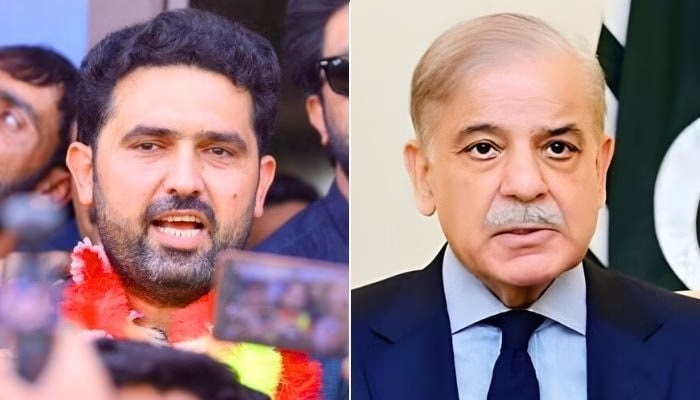Prime Minister Shehbaz Sharif extended congratulations to Sohail Afridi on his election as the new Khyber Pakhtunkhwa Chief Minister, marking an important moment in Pakistan’s political landscape. The essence of this development — one that highlights the need for coordination and cooperation between the federal and provincial governments to achieve shared national goals.
During their first telephonic conversation since the election, Prime Minister Shehbaz Sharif assured the newly-elected CM of the federal government’s readiness to work with the Khyber Pakhtunkhwa administration for the betterment of the country. The Centre is ready to work with you for Pakistan’s interests,the premier stated, emphasising collaboration over confrontation. The exchange marked a rare moment of cordiality amid the ongoing political divide between the Pakistan Muslim League-Nawaz (PML-N) at the centre and the Pakistan Tehreek-e-Insaf (PTI) in the province.
Sohail Afridi’s Response and Political Vision
Sohail Afridi expressed gratitude for the prime minister’s gesture, reaffirming his commitment to represent the 45 million people of Khyber Pakhtunkhwa with responsibility and integrity. Speaking to journalists in Rawalpindi, he revealed that he had formally written to both the federal and Punjab governments, seeking permission to meet the PTI founder, who is currently incarcerated in Adiala Jail. The prime minister assured me he would look into the matter,Afridi said, signalling a possible softening of tensions between the two tiers of government.
Afridi made it clear that his administration would continue to follow the Constitution and law in its dealings with the federation. We have always followed lawful procedures and will continue to do so,he said. His remarks came amid concerns that the PTI’s governance approach might lean toward confrontation, as seen in previous tenures.
Sohail Afridi’s Stance on Protest and Governance
The new chief minister defended his party’s right to peaceful protest, rejecting accusations that PTI only engages in agitation politics. “When justice is not provided through the courts, peaceful protest becomes our constitutional right,” he asserted. Afridi also hinted at the possibility of forming an advisory council to ensure smooth governance in the province.
Emphasising patriotism, Afridi said, “Quaid-e-Azam is the founder of the nation — Pakistan comes first, everything else follows.” His statement reflected an attempt to balance loyalty to his party with a broader commitment to the federation.
Sohail Afridi’s Political Journey and Leadership Style
Sohail Afridi, a young and dynamic PTI leader from Bara tehsil in Khyber district, previously served as the provincial minister for higher education. Known for his grassroots-level political involvement, Afridi has been part of the Pakistan Tehreek-e-Insaf since his student years. His elevation to the role of chief minister underscores PTI’s focus on nurturing young leadership from within the party’s ideological base.
In his maiden address to the Khyber Pakhtunkhwa Assembly, Afridi described himself as a champion of confrontational politics,suggesting a continuation of his predecessor Ali Amin Gandapur’s assertive style. However, he combined that tone with a call for dialogue and coordination with the federal government on key issues such as governance, security, and economic revival.
Federal Response and Political Reactions
Afridi’s comments regarding the federal government’s Afghan policy sparked debate across political circles. He urged Islamabad to review its approach toward Afghanistan, citing the need to protect Khyber Pakhtunkhwa’s security and economic interests. His remarks, however, drew criticism from Rana Sanaullah, Adviser to the Prime Minister on Political Affairs, who termed Afridi’s statement against the Constitution and the law.
Sanaullah argued that while provinces enjoy autonomy after the 18th Constitutional Amendment, they cannot act in defiance of federal authority. If the chief minister acts as per his speech, I don’t think he can function under the Constitution as head of a provincial government,
Challenges and the Road Ahead for Sohail Afridi
As Sohail Afridi takes charge, he faces numerous challenges, including tackling terrorism in the province, restoring law and order, and ensuring smooth coordination with the federal government. His call for reviewing Afghan policy indicates the growing concerns about cross-border militancy and its effects on Khyber Pakhtunkhwa’s stability.
Afridi’s approach also aims to balance assertiveness with pragmatism. His public declaration that “Pakistan comes first” and that his government would act within legal boundaries suggests a willingness to blend political loyalty with national responsibility.
A New Chapter for KP-Federal Relations
The first interaction between Prime Minister Shehbaz Sharif and Sohail Afridi signals a cautious yet hopeful beginning for centre-province relations. Analysts believe that effective cooperation between the federal and Khyber Pakhtunkhwa governments could help improve governance, counter security challenges, and accelerate development in one of Pakistan’s most strategically vital regions.
If Afridi successfully balances PTI’s political ideology with practical governance, his tenure could mark a turning point in provincial politics. The focus will remain on whether he can transform his words of loyalty to Pakistan into policies that foster stability, economic progress, and institutional harmony across Khyber Pakhtunkhwa.
In a political environment marked by friction, the Sohail Afridi administration’s success will depend largely on dialogue, inclusivity, and adherence to the Constitution — principles that Prime Minister Shehbaz Sharif also underscored in his congratulatory call.



